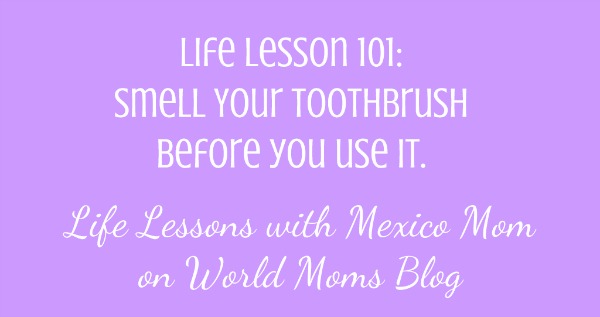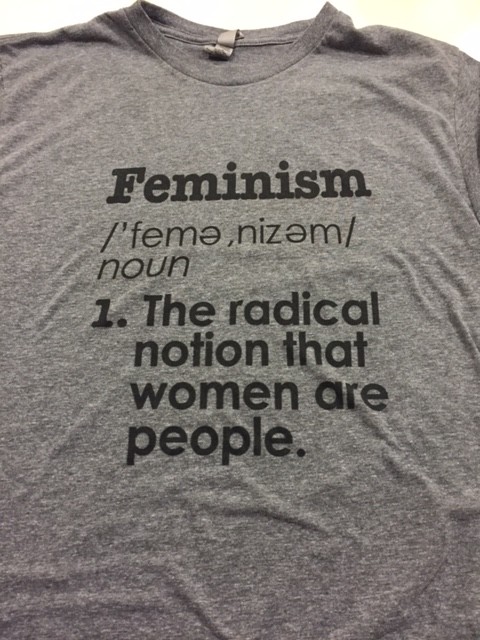
by Tara Bergman (USA) | Apr 1, 2016 | 2016, Being Considerate, Boys, Communication, Discipline, Kids, Life Lesson, Motherhood, North America, Parenting, Tara B., USA, World Motherhood, Younger Children

Recently, my 9-year-old hit a snag in his martial arts class. He practices Shotokan, a style of karate that focuses on mastering technique through continual refinement. His sensei sums it up by saying, “Practice doesn’t make perfect. Perfect practice makes perfect.” (more…)
Tara is a native Pennsylvanian who moved to the Seattle area in 1998 (sight unseen) with her husband to start their grand life adventure together. Despite the difficult fact that their family is a plane ride away, the couple fell in love with the Pacific Northwest and have put down roots. They have 2 super charged little boys and recently moved out of the Seattle suburbs further east into the country, trading in a Starbucks on every corner for coyotes in the backyard. Tara loves the outdoors (hiking, biking, camping). And, when her family isn't out in nature, they are hunkered down at home with friends, sharing a meal, playing games, and generally having fun. She loves being a stay-at-home mom and sharing her experiences on World Moms Network!
More Posts

by Karyn Wills | Feb 22, 2016 | 2016, Boys, Life, New Zealand, Oceania, Older Children

The Skyswing over Rotorua, New Zealand
It’s one of those truths that have become a cliché: having children challenges and changes you. I’ve changed in many ways thanks to the boys pushing emotional buttons and exhausting me to the point of raw survival. I’ve faced many a demon I didn’t know was lurking in my psyche. Those I expected, although the extent of it all still surprises me. This new place is a bit of a shock.
My latest evolutionary leap is to become brave around physical challenges.
I was the girl who would read rather than just about anything. I played with cut-dolls and made up plays and dances, I built indoor huts and had umpteen projects on the go. I did swim, climb a little, build dams and ride horses but I never really pushed my limits, not really. I kept myself safe. I was an expert at that. And then I had three sons who like to do stuff.
Suddenly, I’m in largish surf being a support Mum at a beach camp. I’m swinging on some revolting swing above a hill slope in which you have to be strapped with a harness and you look down directly at the ground from swear-inducing heights. I luge. I hike through bush where there are no other people and try not to think about abductions and falls while we’re out of cell-phone range. I’m jumping off river banks and wharfs from three or four metres up.
And I’m still scared witless. At least in the beginning.
Then I do the thing and repeating it is O.K. Sometimes multiple repeats of challenges are asked of me. Sometimes I allow myself to be convinced. Those boys have a way of parroting me back to me.
“You can do it.”
“We’ll be so proud of you.”
“It’s really fun!”
“Don’t psyche yourself out.”
“Do it when you’re ready.”
“You don’t have to, but I think you’ll regret it if you don’t.”
“Do you need a hug?”
“Let’s do it together.”
“Just go for it.”
And the really annoying one that I say all the time : “You feel brave after doing the scary thing.”
And so I have luged when I would rather have sat and had coffee. I’ve been in the surf when wine in a pretty dress was more my style. I swung on that horrendous swing. I jump off the river bank and the wharf. And you know what, they’re right. I feels good to be brave. And it really does happen after you do the scary thing. I expect they’ll continue to encourage me to do the stuff I don’t want to do and that’s pretty awesome because I’m an old mum and my kids want to do stuff with me. Then they’ll leave me and I suspect those will be some of my favourite memories around parenting.
Have you done anything physically brave thanks to the encouragement of your children? Tell us about it.
This is an original post to World Moms Blog by Karyn Wills of New Zealand. Photo credit: www.loveoftheroad.wordpress.com (The Skyswing over Rotorua, New Zealand)
Karyn is a teacher, writer and solo mother to three sons. She lives in the sunny wine region of Hawke’s Bay, New Zealand in the city of Napier.
More Posts

by Mannahattamamma (UAE) | Feb 8, 2016 | 2016, Adolescence, Boys, Family, Humor, Middle East, Older Children, Parenting, Teenagers, UAE, USA
 Frequently I am embarrassed by the fact that I only speak one language. Many of my friends in Abu Dhabi speak at least two, and most of my students speak three or even four. A few years ago I tried to learn Arabic and was stymied by a simple fact: my brain is old. It’s that whole “old dog new tricks” thing, which is to say, my brain wanted nothing to do with new lexical and grammatical systems.
Frequently I am embarrassed by the fact that I only speak one language. Many of my friends in Abu Dhabi speak at least two, and most of my students speak three or even four. A few years ago I tried to learn Arabic and was stymied by a simple fact: my brain is old. It’s that whole “old dog new tricks” thing, which is to say, my brain wanted nothing to do with new lexical and grammatical systems.
Lately, however, I’ve been confronted with another new language and it’s proving equally difficult to master. In fact, maybe I will never master it.
It’s the language spoken by fifteen-year old boys in the twenty-first century in a first-world city. It’s both a spoken and a written language, comprised of monosyllables, grunts, emojis, and weird snapchat abbreviations. It’s a language that his friends speak fluently and one that he never deigns to translate to us, his parents.
Let me be clear: my son is the proverbial “good kid,” who still (occasionally) sits on my lap (usually when he wants a favor), does his homework without being asked, and is (sometimes) nice to his younger brother. But beyond that?
We get commentary about his basic human needs—food, sleep, wi-fi—and then he retreats into his digitally created iCocoon.
When I look at my son these days, the air seems full of ghosts; it’s like I’m seeing time, compressed and wispy, floating between the two of us. I see his baby self, staggering around the house with mushy graham crackers clenched in each fist, and I see other snippets of his childhood, too, hovering just beyond his (increasingly broad) shoulders. And at the same time, there’s the ghost of my own teenage self, snarling at my mother (sorry mom!) as I stand by the phone, willing The Cute Boy to call me.
The phone is a key difference in this linguistic and generational incomprehension. Those of you of a certain age will remember the days when houses had those things we now call “land lines,” which were anchored in a specific place and were frequently shared by the entire household. That meant that your TOTALLY ANNOYING younger siblings could pick up another extension and a) eavesdrop on your conversation; b) tell your mom what you were talking about; c) tease you mercilessly while you tried to be cool with The Cute Boy on the other end of the line.
Now, however, my son and his teenage friends carry a scrim of adolescence with them at all times, an endless stream of chitterchatter, gossip, sports scores, vaguely obscene quizzes, and god knows what else. Did you know it’s possible to have a scintillating conversation conducted entirely in poop and unicorn emojis, with the occasional emoti-face thrown in for good measure? It’s as if teenagers have all been transported into an ancient Egyptian civilzation and are fluent in hieroglyphs—yet another language I do not speak.
As I think about it, I am not sure, really, whether it’s that my son and I are speaking different languages or that his other language is omnipresent in a way that my teenspeak was not, because technology didn’t let it happen.
At some point I had to hang up the phone and turn off the TV, and engage with my family. Mind you, I wasn’t necessarily pleased about those engagements, but the world of “non-family” was regularly shut off.
Now, with smart phones, the external world is always ready to hand; there is always a way to tune out the family world.
I can hear you all, shaking your heads and muttering that we should set some boundaries and be firm about your expectations and teach your kid some manners and I bet that some of you, with small children, are thinking “my children won’t ever…”
Here’s the thing: I’ve thought all those things too. But then one night my son became fifteen and the battle lines got redrawn. How many times can we argue about how much phone use is too much; how many times can we discuss “reasonable use?” My son insists that I am the only parent who nags about such things, but my totally unscientific research suggests otherwise. I’ve talked with friends from Europe, Africa, the States, and elsewhere in the Middle East, and the screen-time battle seems to be an almost universal parenting problem.
If I think about it, the translation problems run in two directions. If my son could speak “parent,” then he would understand that in my repeated (and to him unreasonable) requests that he turn off his phone and talk to me, I am really saying “don’t grow up so fast, please don’t be in such a hurry to leave us behind.” He would understand that watching him grow up is lovely — and ineffably sad.
Maybe he’d understand if I put it in snapchat-ese for him. Can anyone translate into emoji for me?
How are things different now from when you were a teen? Do you find that the teens of today speak a different language?
This is an original post to World Moms Blog by Deborah Quinn, Mannahattamamma of the UAE. Photo credit to the author.
After twenty-plus years in Manhattan, Deborah Quinn and her family moved to Abu Dhabi (in the United Arab Emirates), where she spends a great deal of time driving her sons back and forth to soccer practice. She writes about travel, politics, feminism, education, and the absurdities of living in a place where temperatures regularly go above 110F.
Deborah can also be found on her blog, Mannahattamamma.
More Posts
Follow Me:


by Tina Marie Ernspiker | Oct 30, 2015 | 2015, Boys, Expat Life, Family, Health, Husband, Kids, Life Lesson, Living Abroad, Mexico, Motherhood, Parenting, World Motherhood, Younger Children

As a wife of one and a mom of four, it seems like I am always learning and discovering! I know I am not alone. It doesn’t matter where we live, let’s just admit it:
The world is a big place, life is a lesson, and children can be the best teachers.
Previously my series, Life Lessons with Mexico Mom, was hosted on Los Gringos Locos. Starting today, I will host it here on World Moms Blog. Look for it the last Friday of every month. I hope you will join us for our continuing adventures in Mexico and beyond. You won’t be disappointed 😉
Here are my most recent insights and experiences as a Mexico Mom: (more…)

by Mannahattamamma (UAE) | Oct 15, 2015 | Boys, Education, Family, Feminism, UAE, Women's Rights

“My grandmother told me that a woman is like the neck and the man is the head,” my student said. “Important but supportive.” The rest of the students in my class on “Global Women Writers” nodded their head in agreement. None of the students is from the same country—in fact, their nationalities pretty much span the globe—but apparently they’d all been given similar sorts of instructions. One girl had been told that she should plan on being an accountant because it would be easy to quit when she got married; another girl said that her mother worried that her brains were going to be threatening to her potential husband.
It’s been interesting to listen to these girls—young women, really—explore history and culture through our readings: we’ve spent time in ancient Japan with Lady Murasaki and Sei Shonagon, visited 17th century Spain with Sor Juana, bounced around the 19th century with Mary Shelley (and her mother Mary Wollstonecraft) and Charlotte Bronte; read Chimimanda Adichie’s TED Talk “We Should All Be Feminists,” and then traced Adichie’s ideas back to Virginia Woolf’s A Room of One’s Own—and back again to Sor Juana.
The list of readings is longer than what I have listed here—we will go to India, New Zealand, Egypt, Nigeria, and the UAE before the term is over—but the students have already noticed a pattern. No matter where we are in time and space, we find variations on the same theme: lack of access. Lack of access to money, education, safety, autonomy—the particulars may change, but always the obstacles seem rooted in the material reality of being female, and how the category of “woman” has been valued (or devalued) through the course of human history.

Sor Juana joined a convent so that she could pursue her studies instead of being forced into marriage and motherhood; Jane Eyre famously declared that women “feel just as men feel; they need exercise for their faculties and a field for their efforts as much as their brothers do; they suffer from too rigid a restraint … precisely as men would suffer; and it is narrow-minded in their more privileged fellow-creatures to say that they ought to confine themselves to making puddings and knitting stockings…”
“I love Jane,” exclaimed one student when we read that passage in the novel. “It’s like she’s speaking to me!” When students respond to ideas in the course, I am always delighted, but in this instance, I had to pause.
What does it mean that the struggles of an early 19th century heroine still resonate with a 21st century reader? I know, of course, that men struggle with feeling limited in their choices—as I remind my students, “gender” is something everyone has (although I’ve noticed that when students talk about “gender roles” they mostly talk about women). All the same, however, wouldn’t you have thought that by 2015, we would laugh at the attitudes Jane complains about because they seem so old-fashioned? Instead we experience a flash of recognition that in Jane’s world, as in our own, society insists on placing boundaries around women’s lives.
When I proposed teaching this course, a colleague asked why I had to specify “women.” She wondered why I didn’t just teach a course called “The Global Novel” or something like that. It’s a reasonable question, I suppose, but I think the answer connects, in a way, to why the United Nations decided, two years ago, to declare 11 October the International Day of the Girl: “Empowerment of and investment in girls are key in breaking the cycle of discrimination and violence and in promoting and protecting the full and effective enjoyment of their human rights.” (Click here to see how World Moms Blog celebrated this day.)
Don’t get me wrong – I am the mother of two boys (and no daughters) and while I know that my sons face gender-related struggles, I also know (because I was once a girl, and am now verging on “crone”) that men have not been as systematically pushed to the margins of history. It’s why we have “Secretary Day,” in the U.S., rather than “CEO Day.” We create formal occasions to notice those who would otherwise be silenced, overlooked.
I teach “Global Women’s Writing” because we live in a world where “woman” gets all too easily pushed out of the picture. Ironically, I teach the course in hopes that one day I won’t need to. Perhaps my students–our children–will inherit a world where we don’t need “International Day of the Girl” or a course in “women” writers. Do you think we’ll ever get there?
This post is original to the World Moms’ Blog. Deborah Quinn occasionally blogs at mannahattamamma.com and writes a regular column for The National, the English-language paper of the UAE. Her most recent column can be found here.
Photo credit to the author.
After twenty-plus years in Manhattan, Deborah Quinn and her family moved to Abu Dhabi (in the United Arab Emirates), where she spends a great deal of time driving her sons back and forth to soccer practice. She writes about travel, politics, feminism, education, and the absurdities of living in a place where temperatures regularly go above 110F.
Deborah can also be found on her blog, Mannahattamamma.
More Posts
Follow Me:


by Tara Bergman (USA) | Oct 9, 2015 | 2015, Boys, Celebrations, Childhood, Communication, Family, Gifts, Helping, Kids, Milestones, Parenting, Tara B., Traditions, USA, World Motherhood, Younger Children

My son turns 10 years old this fall. At the start of the summer, I told my husband that before school reconvened, I intended to have the talk with my son about Santa. While my son has never pushed for answers regarding holiday magic, he is in a multi-age program at school with older, brainy kids. My gut has been telling me that this is the year that Santa’s cover would be blown. I also know my son well enough to know I wanted to control the conversation and not have a big talking fifth grader accidentally ruin Christmas at the last minute. I wanted to work through this far enough away from the holiday so we could all get used to the idea. I knew if I framed things the right way, my son would still be able to welcome the upcoming holiday season. I was resigned to move ahead. (more…)
Tara is a native Pennsylvanian who moved to the Seattle area in 1998 (sight unseen) with her husband to start their grand life adventure together. Despite the difficult fact that their family is a plane ride away, the couple fell in love with the Pacific Northwest and have put down roots. They have 2 super charged little boys and recently moved out of the Seattle suburbs further east into the country, trading in a Starbucks on every corner for coyotes in the backyard. Tara loves the outdoors (hiking, biking, camping). And, when her family isn't out in nature, they are hunkered down at home with friends, sharing a meal, playing games, and generally having fun. She loves being a stay-at-home mom and sharing her experiences on World Moms Network!
More Posts






 Frequently I am embarrassed by the fact that I only speak one language. Many of my friends in Abu Dhabi speak at least two, and most of my students speak three or even four. A few years ago I tried to learn Arabic and was stymied by a simple fact: my brain is old. It’s that whole “old dog new tricks” thing, which is to say, my brain wanted nothing to do with new lexical and grammatical systems.
Frequently I am embarrassed by the fact that I only speak one language. Many of my friends in Abu Dhabi speak at least two, and most of my students speak three or even four. A few years ago I tried to learn Arabic and was stymied by a simple fact: my brain is old. It’s that whole “old dog new tricks” thing, which is to say, my brain wanted nothing to do with new lexical and grammatical systems.

















